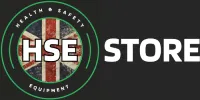Sharps, such as needles, syringes, and lancets, are commonly used in healthcare settings, laboratories, and other workplaces where medical procedures are performed. Proper disposal of sharps is essential to prevent accidental needlestick injuries and the transmission of bloodborne pathogens such as HIV, hepatitis B, and hepatitis C. To effectively dispose of sharps, workplaces provide sharps disposal packs or containers specifically designed for safe containment and disposal. These containers are puncture-resistant and leak-proof, reducing the risk of accidental exposure to contaminated sharps. Once filled, sharps disposal packs are sealed securely and disposed of according to local regulations and guidelines to ensure safe handling and disposal of hazardous waste.
In healthcare facilities, sharps are used for various medical procedures, including injections, blood draws, and surgeries, among others. Laboratories also utilize sharps for specimen collection, testing, and research purposes. Additionally, industries such as tattooing, body piercing, and veterinary care may also use sharps as part of their operations. Regardless of the workplace setting, it is essential to implement proper protocols for the safe handling, use, and disposal of sharps to protect both employees and the community from potential health risks associated with needlestick injuries and exposure to bloodborne pathogens.
